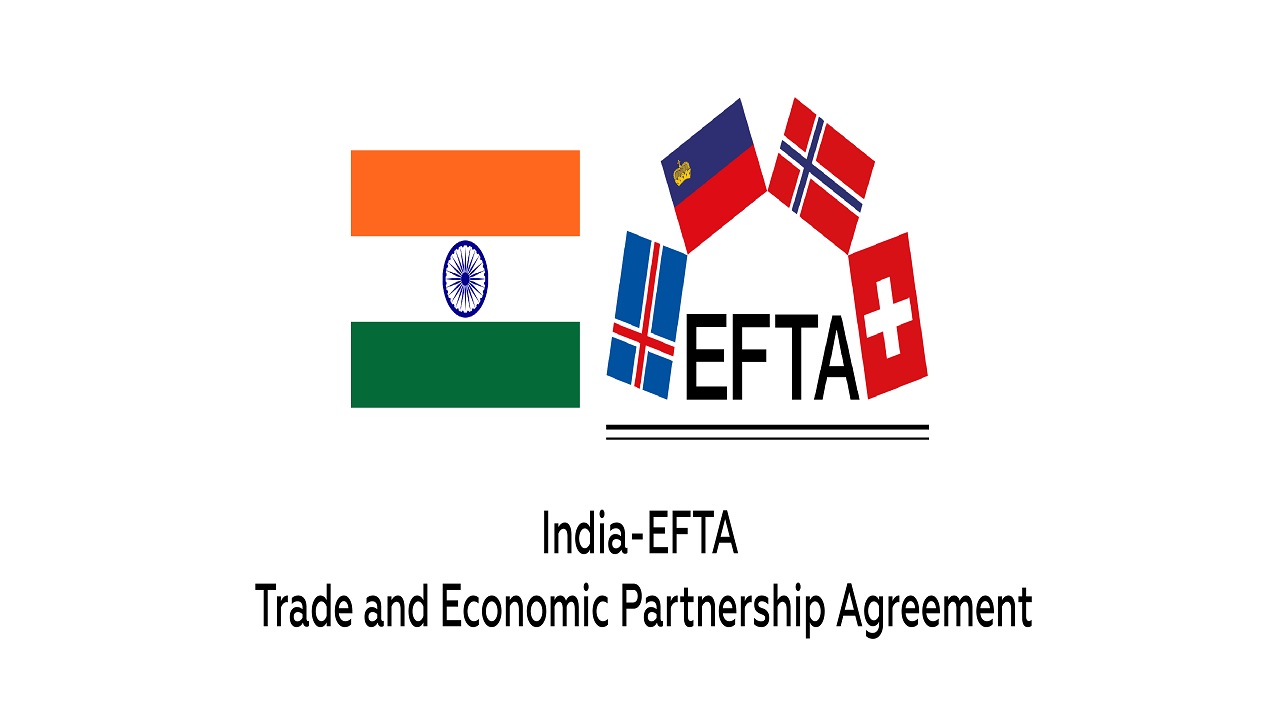India–EFTA Free Trade Agreement: A New Era of Economic Cooperation
Context
India has been actively pursuing comprehensive trade agreements with several global blocs to enhance its economic integration and global competitiveness. In this direction, a significant development occurred when the Commerce and Industry Minister announced that the India–EFTA Free Trade Agreement will be implemented from October 1, 2025. The European Free Trade Association (EFTA) comprises Iceland, Liechtenstein, Norway, and Switzerland, with Switzerland being India’s largest trading partner within the group.
Introduction
The India–EFTA Free Trade Agreement is a landmark initiative aimed at enhancing trade and investment flows between India and the four EFTA nations. It not only provides tariff concessions but also ensures long-term commitments in the investment and services sectors, opening new gateways for Indian businesses and consumers.
Key Features of the Agreement
-
EFTA is an intergovernmental organisation focused on promoting free trade and economic integration among its four member states.
-
India’s two-way trade with EFTA reached $24.4 billion in 2024–25, with gold accounting for over 80% of EFTA’s exports to India.
-
India will offer tariff concessions on 82.7% of its product lines, which cover 95.3% of EFTA's exports.
-
India secured sectoral commitments from each country under the EFTA bloc:
Switzerland – 128 sub-sectors
Norway – 114 sub-sectors
Iceland – 110 sub-sectors
Liechtenstein – 107 sub-sectors -
India will gradually eliminate customs duties over 10 years on several products, including Swiss watches, chocolates, and cut and polished diamonds.
Expected Benefits
-
Investment Commitment
EFTA countries will invest $100 billion in India over 15 years, in two phases:
First Phase – $50 billion within 10 years
Second Phase – $50 billion in the following 5 years -
Employment Generation
The agreement is expected to generate 1 million direct jobs in India. -
Access to Premium Products
Indian consumers will gain access to high-quality Swiss goods like watches, chocolates, biscuits, and clocks at lower prices. -
Growth in Services Sector
India has opened 105 services sub-sectors to EFTA, including legal services, business consulting, R&D, audio-visual services, health, and IT services. -
Strategic Access to European Markets
As over 40% of Switzerland’s global services exports are directed to the EU, this agreement positions India to benefit from enhanced access to European markets through Swiss partnerships.
Conclusion
The India–EFTA Free Trade Agreement represents a strategic shift in India’s trade policy, focusing not just on market access, but also on investment, services, and employment creation. It has the potential to become a model FTA by combining economic opportunity with long-term development goals, while simultaneously deepening India’s engagement with the European economic space.

.jpg)
1.png)

Comments (0)